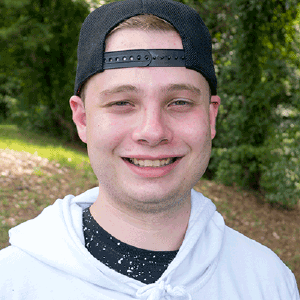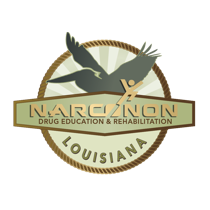Intervention 101

Do you have a loved one or friend who is battling addiction to drugs or alcohol? When you are with them at a holiday event or maybe just hanging out, is the “elephant in the room” there also?
You are not alone! As a licensed interventionist for over ten years, one of the first things I hear is how the family cannot believe this is happening to them. They feel shame, are embarrassed and worry about other people finding out. They say, “We are a good family and have given them everything they need and so much love! How could this be happening?”
I hear it all the time. From doctors, lawyers, police officers, school teachers, moms and dads, husbands and wives. Addiction affects people with a lot and people with very little. It doesn’t matter because ADDICTION DOES NOT DISCRIMINATE!
Myself, I am a very lucky man. I come from a great family who has always loved me and supported me. I found my true love early in life and we have been together for almost twenty-five years and have three amazing, beautiful boys.
I had it all. Then, I became addicted to pain medication and almost lost it all. I’ve been incarcerated and even dead. I’ve wrecked cars, wrecked businesses and destroyed relationships. All because of drugs—I was that guy! The elephant in the room, except I was more of a monster everyone was afraid to confront.
Except my beautiful wife, Amy. She hired an interventionist and set me on an amazing new path. Ten years later, I have almost 500 interventions under my belt and a 93% success rate. I want to share with everyone what I have learned on how to end the addiction nightmare. Here are some tips on how to handle someone who’s battling addiction.
1) First and foremost, DO YOUR HOMEWORK!
Accept the fact you’re not equipped to cure an addict of their addiction. If you’re not a brain surgeon you wouldn't perform brain surgery would you? So surround yourself with professionals who are trained and experienced.
Make sure you answer every question they ask you HONESTLY. Don’t be prideful… I promise you they have heard worse stories. Half-truths or missing information due to embarrassment could get somebody hurt or killed. No one needs to live with that.
Remember addiction doesn’t happen overnight or in 28 days! It takes a long time to get to the root of the problem to figure out why they use alcohol or drugs to solve life issues. For this reason, I recommend long-term, residential inpatient holistic treatment. Let’s remember, we are dealing with someone who loves instant gratification and is used to solving their problems with drugs. So let’s not replace one drug with another, which is why I say go for holistic treatment.
Do your homework and have treatment set up 100% before you start an intervention. The last thing you want to do is put a bunch of energy into an intervention, have them agree to go and have nothing set up. Then, by the time everything does get set up the addict WILL change their mind or worse, they will want to be the decision maker on where and when they go. They will say they want to go tomorrow but experience has shown that tomorrow will never come. I’m sorry but this is the sad truth. People battling addiction are very predictable creatures.
2) Second is to build your team.
An intervention is all about love. Ask who might want to participate and explain they may be eliminated and not to take it personally. As you gather up who will participate, remember that if any of the participants cannot refrain from getting angry and yelling, they should not participate in the intervention.
Instruct your team on the following:
If you could punish addiction out of a person, the prison system wouldn’t be failing us the way it is. And this does not mean that I am saying pressure won’t need to be applied, but it needs to be done on a gradient. Start soft and loving and apply more pressure as time goes on. The focus is to get the person to agree they need help. You can apply more and more pressure if you do it from the point of view of a person who deeply cares about the addict and that care and love will communicate.
Stay strong and focused on helping the addict. Your main objective is to wear down their objections. You will have more stamina because you are able to function without chemicals and you will be able to remain focused.
Any high the addict is on will weaken over time and they will then need more to function. Again, they will want to leave the intervention to go get high. You have to continue putting emphasis on the fact that they need treatment. What they have been looking for in that drug or bottle is waiting for them at the treatment facility.
Keep in mind that NO ONE wants to be addicted to drugs or alcohol. Doing an intervention will be one of the hardest things you have ever done, but also the most rewarding.
3) Third is to take action.
Do a pre-intervention. Meet with your participants and get everyone on the same page. Coach them. Make sure they know they are not to get angry or yell at the addict.
Addicts are very smart and can be strong when trying to protect their addiction. They will prey on anyone weak about their need for treatment and once they find that weakest link they will pounce! By this I mean they will use that person as an ally as to why they do not have to go into treatment. For this reason you must have dedicated, persistent participants and again as stated earlier in #2, eliminate anyone you do not think will contribute to a successful intervention. If you have a grown son who is an addict and he is married to a woman who occasionally drinks with the addict and who wants him to go back to work to get paid, then she will not contribute to a successful intervention.
Make sure you have intention with no reservation. Your intention is they WILL go to treatment on YOUR terms…not theirs! Treatment is the ONLY option. Failure is not an option!
When setting the day and time for the intervention, make sure it is early in the morning so you have enough time to do the intervention, as sometimes they take a while.
It is imperative they go to addiction treatment the day of the intervention so leave time for travel also. If you wait until the next day they WILL change their mind.
Write letters to the addict that will be read at the intervention. Do not shoot from the hip. You are going to be running on raw emotion and they know this and will try to derail you. They will see this has been pre-planned and it will weaken them. The letters should be fairly short and powerful.
The following format has proven to be successful time and time again. It’s three paragraphs long and these are the topics:
- “Love” At the point they are at in their life, they probably don’t love themselves, so it’s hard to believe anyone else would. Remind them you do love them because this intervention wouldn’t be happening if you didn’t.
- “As a result of your addiction” Explain to them you know what’s going on, based on their behavior and your observations.
- “Consequences or bottom line” Go to treatment now or execute your own plan. It’s pretty easy to make treatment look better than living on the streets.
4) The intervention.
Sit them down and explain what’s going on. They likely will be relieved but will not let you know. Remember no one wants to be addicted, but they are scared and in pain so will try to protect their addiction.
Go around and have each person read their letters but only the first and second paragraphs! This is important. The first two paragraphs are soft and loving. You should have a brochure or web page available to show them about the treatment center. Explain it to them. Have an intake specialist from the facility on standby to help explain the program to them. (Remember you’re not the brain surgeon.)
Watch and listen to them! Look for words and physical indicators. You know them. You can tell which way they are swaying.
If they continue to resist help, then have each person read the third part of the letter. At the end of that, tell them it is time for them to go to rehab or they should pack their bags and leave.
Tell them you love them but for mental health reasons, you cannot continue to live this way any longer! You refuse to enable them to death.
Do not worry. Although it seems difficult, in my experiences even if you have to do the last part, it still ends well. 95% of the time they come back right away.
The above are the best guidelines I can give so that you are able to help your loved ones get into treatment. I wish you all the best!—An Interventionist


